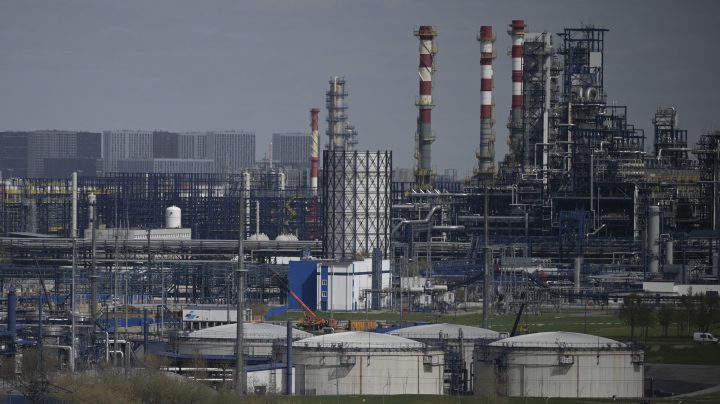
Russian oil prices are climbing — here’s why

In the last week, the price of crude oil exported by Russia has hit a three month high. The cost of Russia’s most exported grade, “Urals,” has hovered around $60 a barrel.
That’s down considerably from the highs reached just after Russia’s invasion of Ukraine last year.
But this current mini-spike has traders wondering whether these higher prices could stick around for a while.
The war in Ukraine has scrambled the market for Russian oil, according to research analyst Pavel Molchanov of Raymond James.
“The pool of buyers immediately dried up after the start of the war,” Molchanov said.
That was before two Western measures aimed at punishing Russia: an EU ban on Russian crude and a $60 price cap spearheaded by the U.S.
There are big legal and logistical risks involved in buying Russia’s Urals grade oil.
As long as the war goes on, Molchanov said, “Urals crude will continue to be heavily discounted compared to just about everything else in the global oil market.”
Since the war began, Russia has shifted some crude exports to Asia, with much of that discounted oil landing in India, Turkey and China. Bill Smead, chairman of Smead Capital Management, said part of the recent surge in Russian crude prices stems from China’s emergence from pandemic lockdowns.
“That had kept the demand for oil down for a while. But now it’s picking up sharply,” Smead said.
Plus, the pool of buyers in China appears to be growing, per David Fyfe, chief economist at Argus Media. Until recently, a noticeable share of a kind of Russian crude from Siberia was going to China’s small independent processors in the so-called “teapot” refining sector.
“They’ve been the main purchaser and in many ways, the main beneficiary of cheaper Russian crude over the last eight or 10 months,” Fyfe said.
Now, larger Chinese refiners are getting interested, driving prices higher, he said. But few things affect oil prices like a threat to slash supply, which Russia has promised to do.
“For March, they have unilaterally decided to cut their crude oil production by half a million barrels a day,” Fyfe said.
The extent to which they’ll follow through could have a big effect on where Russian oil prices go from here.
There’s a lot happening in the world. Through it all, Marketplace is here for you.
You rely on Marketplace to break down the world’s events and tell you how it affects you in a fact-based, approachable way. We rely on your financial support to keep making that possible.
Your donation today powers the independent journalism that you rely on. For just $5/month, you can help sustain Marketplace so we can keep reporting on the things that matter to you.

















